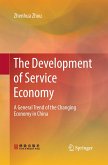Based on systematic and evidence from major soccer leagues in Europe and South America, this volume explores how soccer has become the world's most important team sport. Readers will find a thorough understanding of the market for players, coaches and referees, as well as the demand for the sport.
Soccer has become "big business." The aggregated market value of the first and second division teams from the "Big 5" European Leagues (England, France, Germany, Italy and Spain) is nearly EUR12 billion. Using systematic and anecdotal evidence from the "Big 5" and additional evidence from other European and some of the South American Leagues (Brazil and Argentina), this book explores the development of soccer as the world's most important team sport and addresses competitive balance across the a large number of leagues. The book also provides the reader with a thorough understanding of the market for players, coaches and referees as well as the demand for soccer, both on TV, at the gate, and in the betting office. Finally, the economic implications of pertinent recent problems, such as hooliganism and racism, are addressed.
Most of the discussion about player salaries, head coach dismissals, stadium subsidies, ticket prices and TV contracts is not very well informed andis based on prejudices. Assembling and interpreting the relevant and available information from an economic viewpoint provides the reader with a fresh new perspective on those subjects. Econometric evidence is presented in the form of graphs and figures instead of regression coefficients and is supplemented by anecdotal evidence. "Economic jargon" will be limited to a minimum in order to give readers a more intuitive understanding of the material.
Soccer has become "big business." The aggregated market value of the first and second division teams from the "Big 5" European Leagues (England, France, Germany, Italy and Spain) is nearly EUR12 billion. Using systematic and anecdotal evidence from the "Big 5" and additional evidence from other European and some of the South American Leagues (Brazil and Argentina), this book explores the development of soccer as the world's most important team sport and addresses competitive balance across the a large number of leagues. The book also provides the reader with a thorough understanding of the market for players, coaches and referees as well as the demand for soccer, both on TV, at the gate, and in the betting office. Finally, the economic implications of pertinent recent problems, such as hooliganism and racism, are addressed.
Most of the discussion about player salaries, head coach dismissals, stadium subsidies, ticket prices and TV contracts is not very well informed andis based on prejudices. Assembling and interpreting the relevant and available information from an economic viewpoint provides the reader with a fresh new perspective on those subjects. Econometric evidence is presented in the form of graphs and figures instead of regression coefficients and is supplemented by anecdotal evidence. "Economic jargon" will be limited to a minimum in order to give readers a more intuitive understanding of the material.








